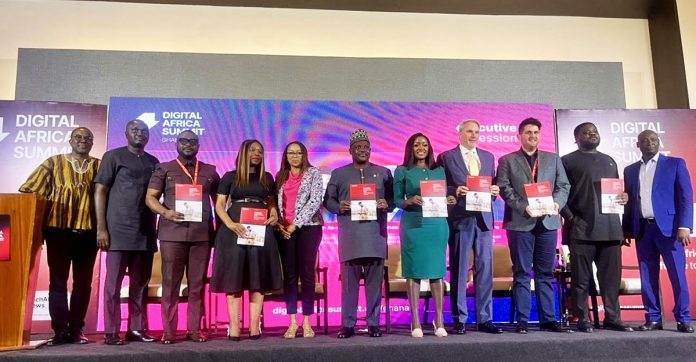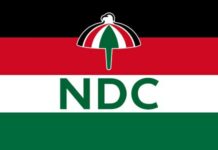Ghana is positioning itself as the future hub of Artificial Intelligence (AI) in Africa, according to the Minister for Communication, Digital Technology and Innovation, Samuel Nartey George.
Speaking at the 2025 Digital Africa Summit in Accra, the Minister emphasized that the government was laying the foundation to make AI a central driver of the country’s digital transformation and economic growth.
“Ghana will be the hub of Artificial Intelligence in Africa. It doesn’t happen overnight, but we are putting the building blocks in place. It is like a construction site now, but we are hopeful that the mansion will be revealed in the shortest possible time,” Sam George declared.
The Minister highlighted a series of initiatives already underway to advance this vision. These include the training of one million Coders with a focus on AI skills, a $1 billion partnership with the United Arab Emirates to establish a major AI infrastructure project, and the development of a national AI strategy in collaboration with universities and private sector innovators.
He noted that Ghana was working with institutions such as KNUST, the University of Ghana and AI developers like MinoHealth Labs to ensure that AI applications are designed to serve local needs.
One priority area is agriculture, where government is developing large language models (LLMs) tailored to Ghana’s local languages to provide farmers with AI-driven tools.
“We are ensuring that agritech applications can speak to farmers in the language they understand, putting AI tools directly in their hands,” he said.
Beyond AI, Sam George stressed the importance of aligning education with industry needs. He called for a national dialogue on curriculum reforms to ensure graduates are “market ready,” noting that many employers currently have to retrain university graduates before they can be fully productive.
“Academia, industry and regulators must work together to ensure that we are training engineers and graduates who meet the specific needs of industry,” he emphasised.
He disclosed that nearly 1,000 arrests have been made in cybercrime-related cases this year alone, crediting the heightened work of the Cybersecurity Authority.
Recent high-profile cases have included the extradition of fraud suspects to the United States, achieved through collaboration with the FBI.
“Ghana will not be a haven for cyber fraud. We will clamp down on all cybercrime-related activities and build strong defenses,” he assured, adding that Ghana faces daily cyberattacks across multiple sectors, but has developed the resilience to recover quickly.
His comments were reinforced by the launch of a new GSMA report, Digital Transformation as a Catalyst for Ghana’s Economic Growth, unveiled at the same summit.
The report reveals that with the right reforms, Ghana could add $20 billion to its economy by 2030 through digital transformation.
Currently, Ghana’s mobile industry contributes about 8% to GDP (valued at GHS 94 billion). However, the GSMA notes that despite 99% 4G coverage, a 62% usage gap persists, meaning millions of Ghanaians who have access to mobile internet are not yet using it.
Expanding usage could unlock massive socio-economic benefits across agriculture, manufacturing, and government services.
The study estimates that digital adoption in agriculture alone could add GHS 8 billion in value, create 150,000 jobs, and boost crop yields by 10–20%.
In manufacturing, technologies such as IoT and AI could generate GHS 11.4 billion in additional value, particularly in cocoa and gold processing.
Government services also stand to benefit, with full digitalization of tax systems potentially raising GHS 4.4 billion in revenues by reducing leakage and improving efficiency.
Nevertheless, the GSMA report highlights key barriers to Ghana’s digital progress, including device affordability. For the poorest 20% of Ghanaians, a smartphone can cost nearly 99% of their monthly income.
While reforms such as the removal of the e-levy are praised as positive steps, the report calls for expanded public-private partnerships to make smartphones more affordable through financing schemes like MTN’s “Pay Later” and Telecel’s microfinance packages.
Head of Africa at the GSMA, Angela Wamola, described Ghana’s policy framework as promising, but urged further reforms. “Ghana’s RESET agenda provides the perfect framework for digital-led growth,” she said.
“Our report shows that by addressing specific policy barriers – from spectrum allocation to device affordability – we can connect millions more Ghanaians while positioning the country as West Africa’s premier digital hub.”
The GSMA also recommended accelerating investments in digital infrastructure, particularly through a clear 5G spectrum roadmap and streamlined rights-of-way processes to reduce deployment costs.
This would be particularly critical for rural areas, where connectivity remains weaker despite the country’s impressive national coverage.
The summit, hosted at the Kempinski Hotel in Accra, brought together industry leaders, policymakers and international partners to discuss how Ghana can unlock the next phase of its digital transformation.









